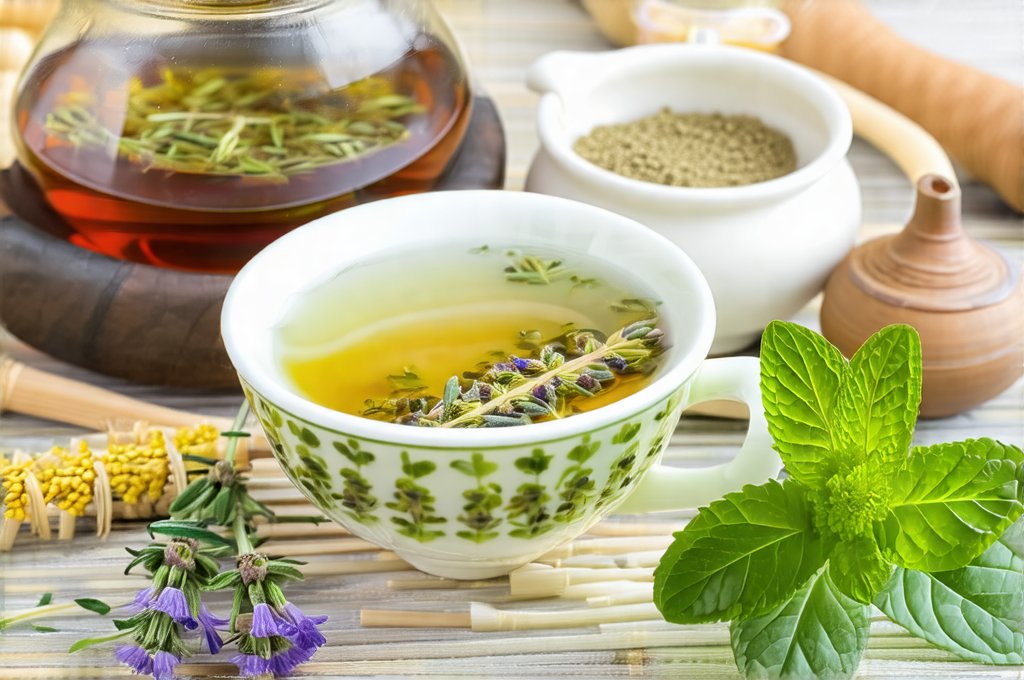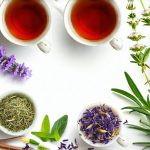The gentle ritual of sipping tea can be far more than a comforting habit; it’s an ancient practice with powerful potential for supporting our well-being. Many of us instinctively reach for a cup when feeling stressed or under the weather, and rightly so. Certain herbal teas are particularly renowned for their ability to soothe digestive discomfort and promote healthy gut function. But navigating the world of herbal teas can be overwhelming – which ones truly deliver on these promises? This article explores some of the best herbal tea options specifically chosen to calm your stomach and aid digestion, offering a guide to understanding their unique properties and how to incorporate them into your daily routine for optimal digestive health.
Digestive issues are incredibly common, ranging from occasional bloating and indigestion to more chronic conditions like irritable bowel syndrome (IBS). While addressing underlying causes is crucial, incorporating gentle herbal remedies can provide significant relief and support the natural processes of digestion. Herbal teas offer a holistic approach, working in harmony with the body rather than simply masking symptoms. Beyond their digestive benefits, many of these teas also boast calming properties, helping to reduce stress – a known contributor to gut dysfunction – creating a virtuous cycle of well-being. This guide will empower you to make informed choices and find the perfect herbal tea blend to nurture your digestive system. When experiencing discomfort, it’s helpful to understand why long gaps between meals contribute to acid buildup and irritation.
Soothing Herbal Teas for Digestive Health
Several herbal teas stand out as exceptional choices for calming upset stomachs and promoting healthy digestion. Peppermint tea, perhaps the most widely recognized, is a powerhouse for relieving bloating and gas due to its menthol content which relaxes the muscles in the gastrointestinal tract. Ginger tea, famed for its anti-nausea properties, can effectively ease motion sickness, morning sickness, or general digestive upset. Chamomile tea, known for its calming effects, doesn’t directly target digestion but reduces stress levels that often exacerbate digestive issues; it also possesses mild anti-inflammatory properties. These aren’t the only options though – lesser-known teas like fennel and licorice root offer similarly powerful benefits.
The beauty of herbal teas lies in their versatility. You can enjoy them hot or cold, experiment with different blends to find your personal preference, and easily incorporate them into your daily routine. It’s important to source high-quality herbs from reputable suppliers to ensure purity and potency. Organic options are often preferred to minimize exposure to pesticides and herbicides. Remember that even natural remedies should be approached mindfully; if you have any underlying health conditions or are taking medications, it’s always best to consult with a healthcare professional before incorporating new herbal teas into your diet. Making sure there is space between tasks and meals can also help support digestion.
Furthermore, the way we consume these teas matters too. Sipping slowly allows for better absorption and gives the digestive system time to process the herbs effectively. Avoid drinking tea immediately after meals as this can dilute digestive enzymes; instead, enjoy it between meals or 20-30 minutes before eating to prepare the digestive system. If you’ve indulged in a less healthy meal, learn how to calm your stomach after a cheat day to minimize discomfort.
Understanding Key Herbal Ingredients
The effectiveness of herbal teas lies in the specific compounds found within each herb. Peppermint’s menthol is a prime example, but many other constituents contribute to their therapeutic properties. Ginger contains gingerols and shogaols, potent anti-inflammatory and antioxidant compounds responsible for its digestive benefits and ability to alleviate nausea. Chamomile owes its calming effects to apigenin, an antioxidant that binds to certain receptors in the brain, promoting relaxation. Fennel seeds contain anethole, which helps reduce gas and bloating by relaxing the intestinal muscles.
Licorice root contains glycyrrhizin, known for its soothing properties and potential benefits for stomach ulcers – however, caution is advised as excessive licorice consumption can raise blood pressure. Understanding these key compounds allows you to appreciate the nuanced effects of each herb and choose teas that address your specific digestive needs. It also highlights the importance of proper preparation; brewing time and water temperature can influence the extraction of these beneficial compounds. Generally, steeping herbs for 5-10 minutes in hot (but not boiling) water yields optimal results. To further support digestion, consider best food and drink choices to reduce nausea and improve overall digestive health.
It’s crucial to remember that herbal teas are generally considered safe for most people but aren’t a cure-all. They work best as part of a holistic approach to digestive health that includes a balanced diet, regular exercise, and stress management techniques.
Brewing the Perfect Cup & Dosage Considerations
Brewing herbal tea isn’t just about throwing herbs into hot water; it’s an art form that significantly impacts flavor and effectiveness. For optimal extraction, use filtered water heated to around 200-212°F (93-100°C) – boiling water can sometimes scorch delicate herbs, diminishing their beneficial properties. Generally, one teaspoon of dried herb per cup (8 ounces) is a good starting point, but you can adjust this based on personal preference and the strength desired.
- Steeping Time: Different herbs require different steeping times.
- Peppermint & Chamomile: 5-10 minutes
- Ginger: 10-20 minutes (longer for stronger flavor)
- Fennel & Licorice Root: 10-15 minutes
- Covering: Always cover your teacup while steeping to prevent volatile oils from escaping, preserving the aroma and therapeutic benefits.
- Dosage: While herbal teas are generally safe, moderation is key. Most adults can safely drink 2-3 cups per day of most herbal teas. However, individuals with specific health conditions or taking medications should consult a healthcare professional. Licorice root, as mentioned earlier, should be consumed in limited quantities due to its potential impact on blood pressure.
Potential Interactions & Contraindications
While generally safe, it’s essential to be aware of potential interactions and contraindications when incorporating herbal teas into your routine. Certain herbs can interact with medications, so if you are taking any prescription drugs, consult your doctor before adding them to your diet. For example, ginger may enhance the effects of blood-thinning medications, while licorice root could interfere with certain heart or kidney medications.
- Pregnancy & Breastfeeding: Some herbal teas are not recommended during pregnancy or breastfeeding. Chamomile and peppermint are generally considered safe in moderation, but it’s best to check with your healthcare provider before consuming them regularly.
- Allergies: Individuals with allergies to plants in the Asteraceae family (like ragweed, marigolds, and daisies) may experience allergic reactions to chamomile.
- Existing Conditions: People with gastroesophageal reflux disease (GERD) should be cautious with peppermint tea as it can relax the lower esophageal sphincter, potentially worsening symptoms. Those with high blood pressure should limit licorice root consumption. Understanding how cold environments slow stomach function can also help you optimize your digestive health.
Creating Your Own Digestive Tea Blends
Don’t feel limited to single-herb teas! Experimenting with blends allows you to create personalized concoctions tailored to your specific needs and preferences. A simple blend for bloating could combine peppermint, fennel, and chamomile. For nausea relief, try ginger paired with a touch of mint. Consider adding a slice of lemon or a drizzle of honey (in moderation) to enhance the flavor.
- Base Herb: Choose a calming herb like chamomile as your base.
- Digestive Aid: Add herbs known for their digestive benefits, such as peppermint, ginger, or fennel.
- Flavor Enhancer: Incorporate ingredients like lemon balm, orange peel, or cinnamon to improve the taste and aroma.
Remember to start with small amounts of each herb and adjust proportions based on your preferences. Keep a journal of your blends to track what works best for you. Ultimately, finding the perfect herbal tea blend is a personal journey – one that can lead to significant improvements in digestive health and overall well-being. If you suspect your stomach empties too slowly, it’s important to learn about best ways to check.


















